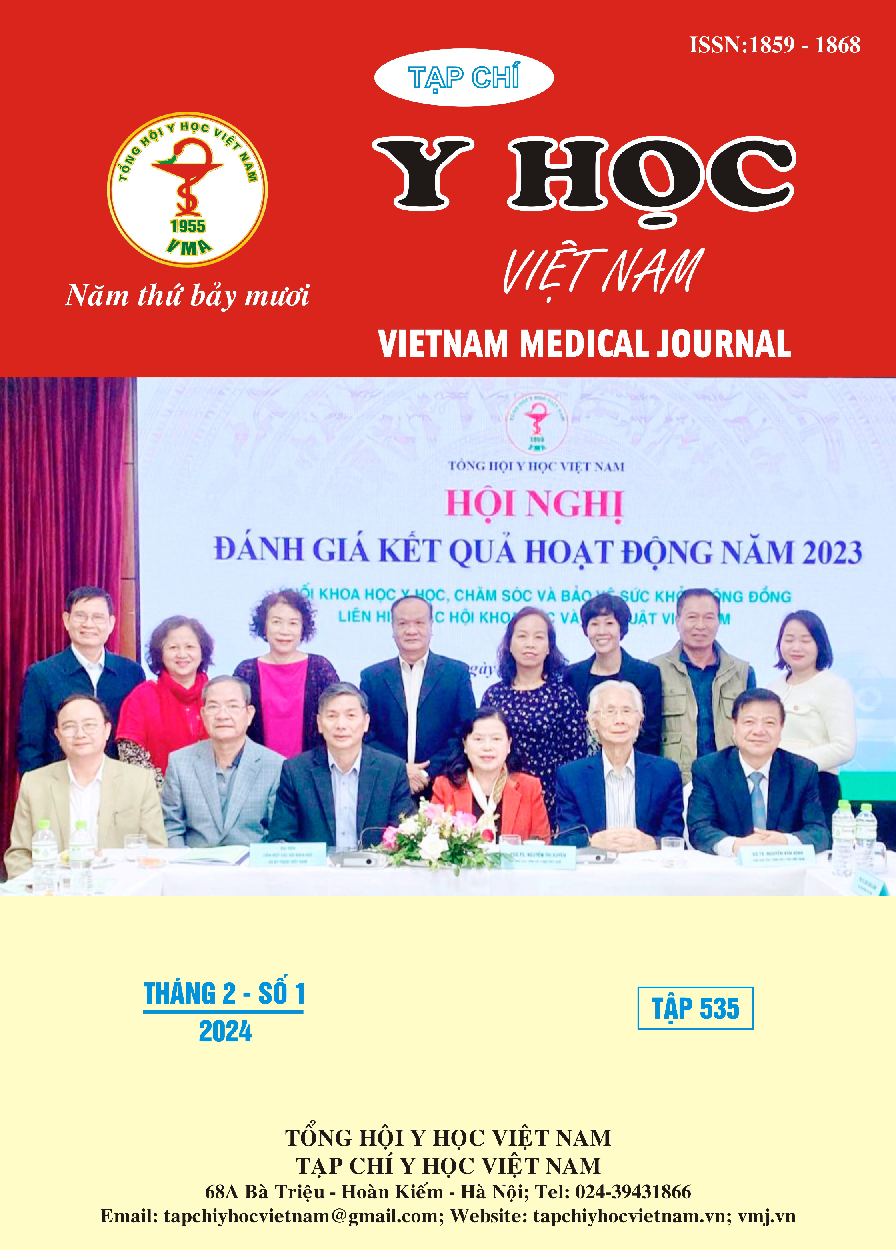EFFECTIVENESS OF SOME INTERVENTION ACTIVITIES IN REDUCING SYMPTOMS OF POSTPARTUM DEPRESSION IN MOTHERS OF PREMATURE BIRTH
Main Article Content
Abstract
Objective: To evaluate the effectiveness of selected interventions aimed at reducing postpartum depression symptoms in preterm mothers at the Central Obstetrics Hospital and Hanoi Obstetrics Hospital from February 2023 to June 2023. Research method: an interventional study involving 89 mothers with EPDS scores ≥ 13; two intervention programs were implemented including psychological counseling combined with the use of the "Postpartum Support" mobile application and standard psychological counseling. The EPDS (Edinburgh Postnatal Depression Scale) and clinical depression symptoms assessment before and after intervention were used to evaluate intervention effectiveness. Results: EPDS scores decreased from 15.6 ± 2.9 points before intervention to 7.2 ± 3.8 points after intervention (p <0.05). After intervention, the percentage of mothers with EPDS scores ≥ 13 decreased to 10.1%; 10.1% of mothers had EPDS scores from 10-12 points and 79.8% of mothers had EPDS scores below 10 points. All clinical depression symptoms had a reduced rate after intervention, with statistically significant differences (p <0.05). Intervention efficacy rates for depression symptoms ranged from 50.8% to 90.6%. Conclusion: Psychological interventions combined with the use of the "Postpartum Support" mobile application and simple psychological counseling are effective in reducing postpartum depression symptoms. Therefore, these interventions should be considered for implementation in a group of mothers with postpartum depression symptoms.
Article Details
References
2. Phạm Ngọc Thanh. Trầm cảm ở bà mẹ có con sinh non đang nằm viện tại khoa sơ sinh - bệnh viện Nhi Đồng I. Tạp Chí Nghiên Cứu Học 2011;15:70–5.
3. Adewuya AO, Ola BO, Aloba OO, Mapayi BM, Okeniyi JAO. Impact of postnatal depression on infants’ growth in Nigeria. J Affect Disord 2008;108:191–3. https://doi.org/10.1016/j.jad.2007.09.013.
4. Nanzer N, Sancho Rossignol A, Righetti-Veltema M, Knauer D, Manzano J, Palacio Espasa F. Effects of a brief psychoanalytic intervention for perinatal depression. Arch Womens Ment Health 2012;15:259–68. https://doi.org/10.1007/s00737-012-0285-z.
5. Lê Thị Hồng Diên. Đánh giá và can thiệp trường hợp trầm cảm sau sinh. Luận văn thạc sỹ Tâm lý học. Trường Đại học Khoa học Xã hội và Nhân văn - Đại học Quốc gia Hà Nội, 2018.
6. Holden JM, Sagovsky R, Cox JL. Counselling in a general practice setting: controlled study of health visitor intervention in treatment of postnatal depression. BMJ 1989;298:223–6.
7. Cullinan R. Health visitor intervention in postnatal depression. Health Visit 1991;64:412–4.
8. Branquinho M, Canavarro MC, Fonseca A. A Blended Cognitive–Behavioral Intervention for the Treatment of Postpartum Depression: A Case Study. Clin Case Stud 2022;21:438–56. https://doi.org/10.1177/15346501221082616.
9. Martinez-Torteya C, Rosenblum KL, Katsonga-Phiri T, Lindsay H, Muzik M. Postpartum Depression and Resilience Predict Parenting Sense of Competence in Women with Childhood Maltreatment History. Arch Womens Ment Health 2018;21:777–84. https://doi.org/ 10.1007/s00737-018-0865-7.
10. Nguyễn Thị Thanh Huyền. Nghiên cứu đặc điểm lâm sàng rối loạn trầm cảm sau sinh. Luận văn tốt nghiệp chuyên khoa cấp II. Trường Đại học Y Hà Nội, 2014.


